
To be honest, Seabourne Alpha was a rust bucket and certainly not an attractive prototype for a scale model. Launched in March 1912 as the Hartford she almost certainly served as a freighter during both WW1 and WW2 but by 1950 she had been modified to collect gravel from the seabed, had been renamed Seabourne Alpha and had fallen on hard times. In 1962 I worked on her as a 16 year old deckhand - thus the interest.
I can well remember her dangerous state; the port anchor couldn’t be dropped because there was a knot in the chain, the majority of her doors were rusted OPEN and one of the lifeboats took half a day to launch and then promptly sank! There were many other horrors so where the owners acquired the Certificate of Seaworthiness I know not, but I have my suspicions!
Perhaps my biggest scare was to be pulled up to the top of the mast in a Bosun’s chair armed with paint and a brush. The pulley at the masthead was slowly moving downwards because the wood was completely rotten!
In photo 1 I show the ship as she was originally constructed and named the Hartford. Photograph 2 shows the ship (in model form) as she looked after alteration – note the wheelhouse and pipes and tubes.
She collected about 700 tons of gravel and sand from the sea bottom using a 90 foot long tube which was lowered over the side. The slurry was pumped into a small hold near the bow and this was in turn pumped out into a large open hold. Excess water flowed out via the scuppers. The slurry could be distributed around the hold using a large manhandled chute so that even loading could be guaranteed. The settled slurry in the holds behaved like a quicksand.
Bu hikaye Model Engineer dergisinin 4626 sayısından alınmıştır.
Start your 7-day Magzter GOLD free trial to access thousands of curated premium stories, and 9,000+ magazines and newspapers.
Already a subscriber ? Giriş Yap
Bu hikaye Model Engineer dergisinin 4626 sayısından alınmıştır.
Start your 7-day Magzter GOLD free trial to access thousands of curated premium stories, and 9,000+ magazines and newspapers.
Already a subscriber? Giriş Yap
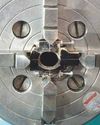
WORKSHOP TIP - Boring Eccentrics
I am making a 1 inch Minnie traction engine and have arrived at the machining of the eccentric straps.
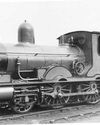
Wenford A 7¼ Inch Gauge 2-4-0 Beattie Well Tank
The stage has now been reached where the well tank body can be completed but beforehand there are some internal details to add.
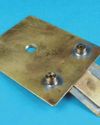
Vertical Boiler Locomotives
Vertical Boiler Locomotives
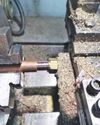
Union Nuts, and How to Make Them
These are quite different from those commercially available and are made from copper
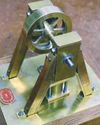
SHOWCASE Paul's Engine
One day my son Paul came to me and asked if we could make something in my workshop, so that he could learn engineering processes.
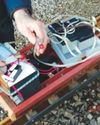
CLUB NEWS
My secret’s out!
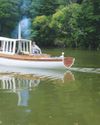
Building Dancer - The Boiler
Dancer needed a boiler that would be somewhat larger than the size permitted under the Model Engineering exemptions in the New Zealand regulations.
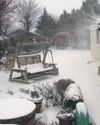
An Inverted ‘Ross Yoke' Watercooled Stirling Engine
As with all my hot air engines they are cheap to build, mostly from scrap
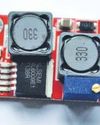
A Draught Proposal
A Draught Proposal
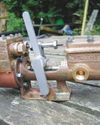
A Boiler Feed Pump
A Boiler Feed Pump